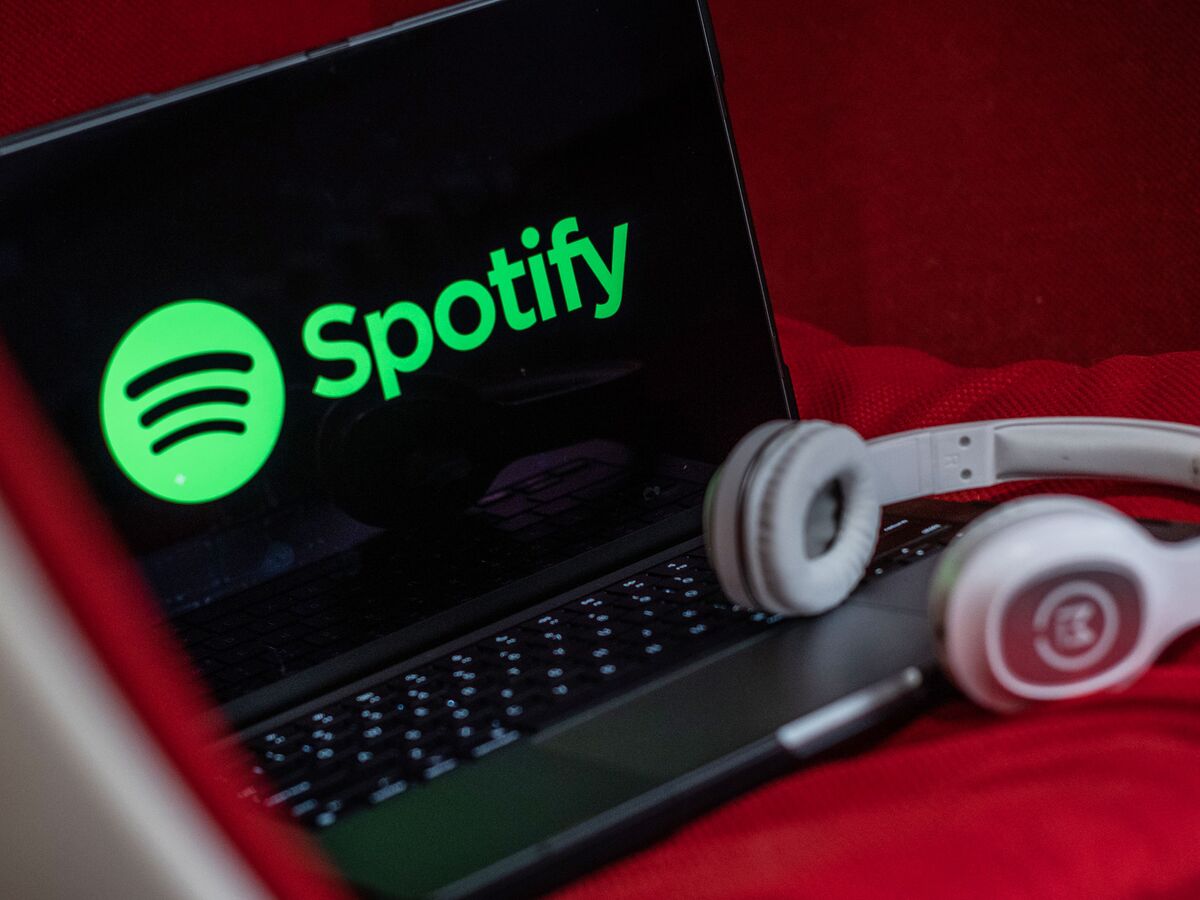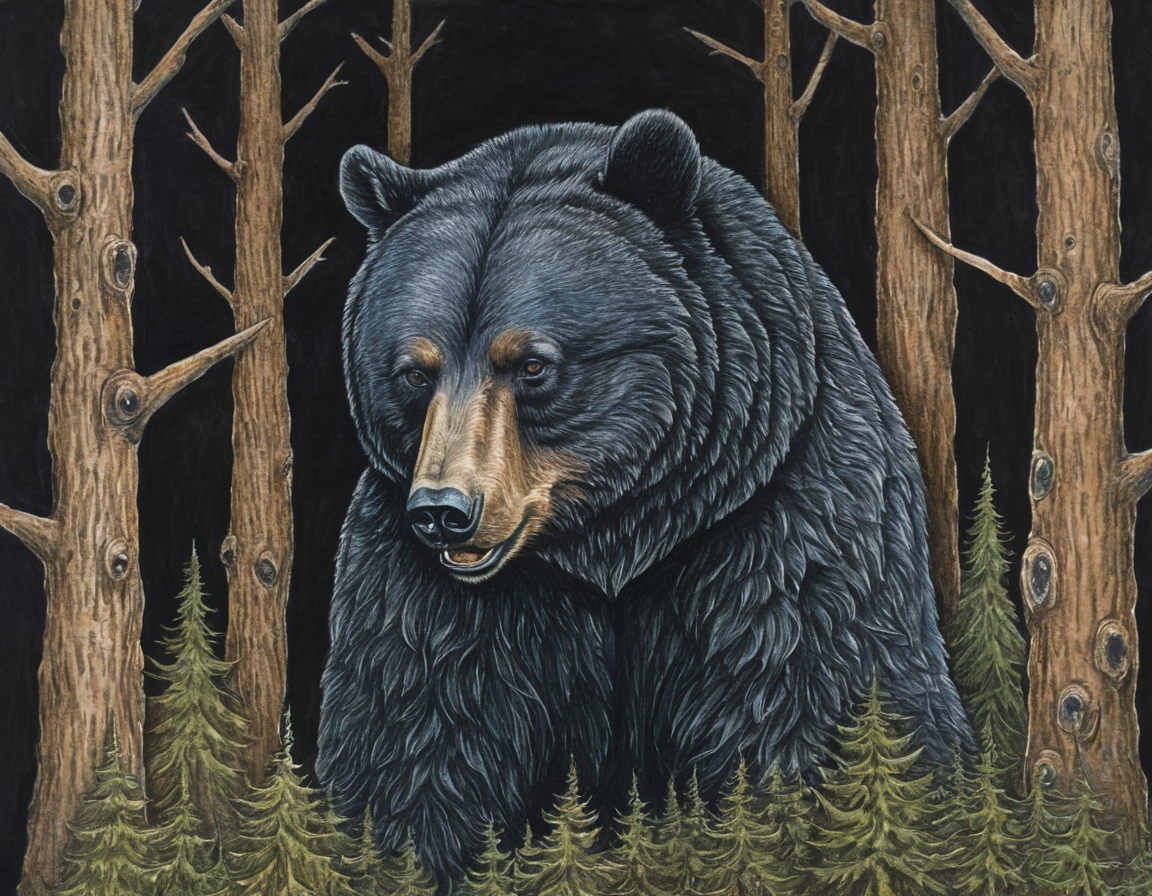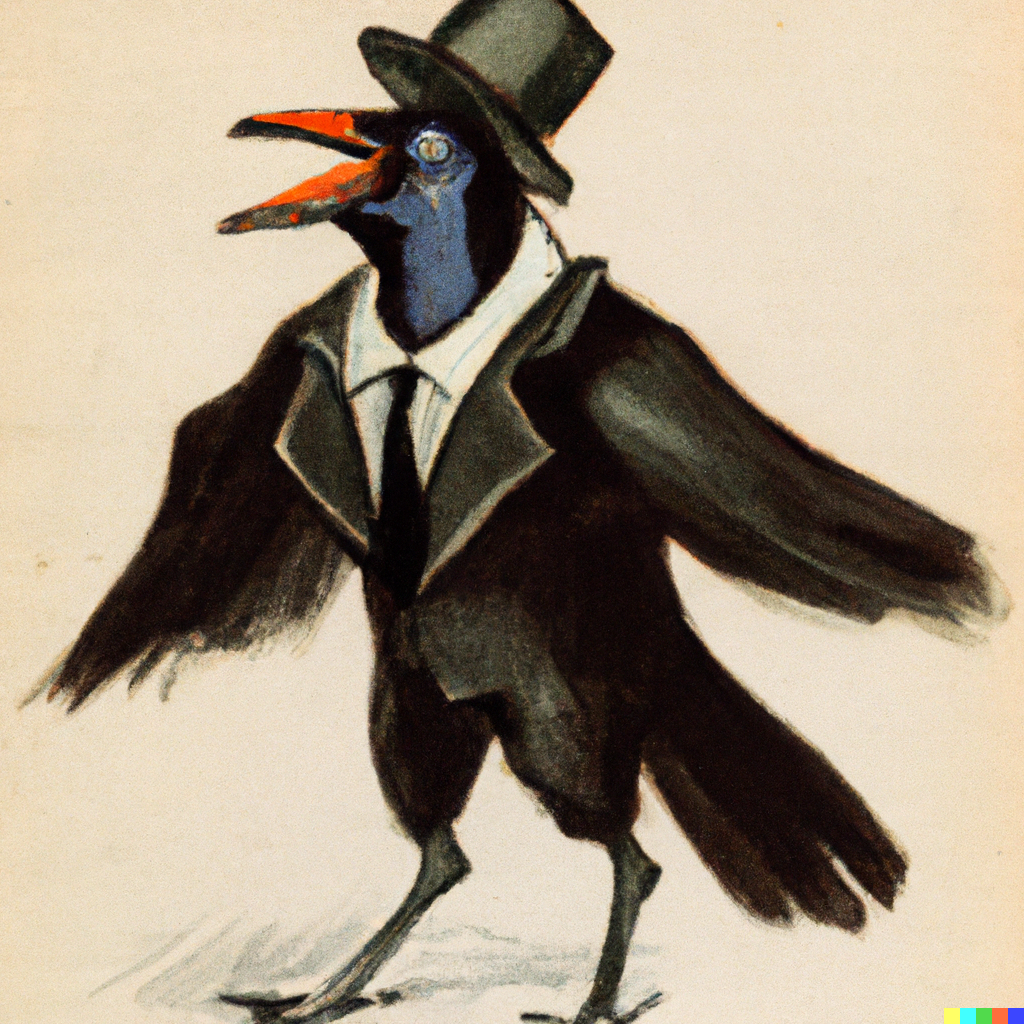From the article: “Once Spotify realized how much attention was going to white noise podcasts, the company considered removing these shows from the talk feed and prohibiting future uploads while redirecting the audience towards comparable programming that was more economical for Spotify — doing so, according to the document, would boost Spotify’s annual gross profit by €35 million, or $38 million.” That doesn’t sound like it’s costing them $38 million, it sounds like they are speculating they COULD make $38 million. I was confused as to how they would be losing money.
Yea, I hate when opportunity cost and loss are conflated.
Opportunity cost will be the death of our current system IMO.
Buying up housing, hiking subscription prices because Oooh We Can Make More Money, They Will Pay For It Anyway
And piracy. Most people who pirate had no intention of being customers to begin with… and others will become a customer if the price is right.
others will become a customer if the price is right.
This is me 100%. I was a huge pirate back in the day. As streaming services grew, I slowly stopped pirating. Netflix and Hulu had enough content to keep me entertained for $20/month. Now there’s too many streamers, commercial free prices are rising close to $20 each, and each service only has a handful of things I want to watch. The open water is looking more tempting every day.
The convenience is the issue for me. There should be minimal friction between me and the movie playing. For a while, around 2010-12, Netflix and also the pirate streaming sites had it right. Things worked like butter, it was beautiful. For a few years, the legit streaming sites got good too but then corporatism ruined it. All the distributors yanked their stuff from Netflix, rolled out half baked apps three years too late, filled them with b movies and a few out of date AAA titles, and basically attempted to make the case that streaming was bad and you should pay for cable and go to the theater.
So I sail the seas more than ever.
oh yeah. I stopped pirating during the golden age of Netflix because it was just more convenient to pay and stream. Now piracy has become the easiest way to get new content again.
Come join us ye scaleewag. Thar be free booty across the bay in all directions.
Personally I get lost in the weeds whenever I look at pirate communities. I was considering a “debrid” service for ease of use but then got hit with “they don’t seed those are super bad” and was told to look into a seedbox, and get invited into trackers, and get stremio, and buy a personal server…
Lol I’m probably overcomplicating things for myself but sheesh my head spins when I get into this stuff.
Honestly, the old Bay and a vpn is all I use. The top 100 hd movies alone is worth a peek every few weeks to see what pops up.
I just use free streaming sites. In some circumstances pirating is the only way to way to watch the highest quality version of the content. For example, Star Trek: Deep Space Nine was AI upscaled to HD by fans after the studio said it was “too expensive” – so pirating is literally the only way to watch it on a modern TV without feeling like you need eyeglasses.
Yarg, I came for the booty and never left!
YARRRRR
Exactly. They had a sweet spot for a tiny slice of time. If they had kept that going it would be all good.
For me it’s not even about price. I only (theoretically!) pirate if I cannot buy the album anywhere. I don’t pay to stream, but I definitely pay to buy so I can listen on my chosen device.
Big production companies don’t want to make their music or movies available for easy use. You have to jump through hoops and stream on some annoying platform rather than pay to download and play wherever you want. Soooo… they don’t get my money. They don’t want my money.
Opportunity cost is still a cost, and this article is about “costs”.
First and foremost the headline is intended to make it sound like Spotify is losing that money. Just look at the comments here and you can see that it’s very commonly misunderstood.
That said, opportunity cost is considered an irrelevant cost.
A relevant cost deals with actual cash flow, and opportunity cost is vapor because it doesn’t actually hit the ledger in any way. It’s nothing more than a way to express potential revenue changes, which are really just educated guesses.
If opportunity costs were meaningful at all then every business would be losing trillions of dollars.
Next: Not Raising Subscriptions to $100/month is Costing Spotify More Than 1 Billion Dollars per Year.
So the problem is that white noise doesn’t compress very easily.
Compression algorithms are generally designed to reduce noise; if you have something that’s extremely noisy it’s really hard to compress because that’s not what the algorithms were designed to do.
This means that these podcasts take up more space, which means they use more bandwidth than an equivalent non-white-noise solution.
A middle ground would be banning these “podcasts” and then having a white noise generator built into the app. The white noise generator would run locally on your device (very easy to make white noise) and wouldn’t cost any bandwidth at all.
They should just do it procedurally on the fly. because after all there was probably some algorithm that generated those all these and saved to a file. Just cut the file…
I’ve wondered for a while now why so few devices seem to generate it on the fly. Even Google Home and Alexa devices seem to play a 1 hour long file that fades out and in. The older, standalone “sound spa” units played a loop a few seconds long, which bothered some listeners who could hear a pattern due to the loop (maybe due to compression artifacts). I imagine it’s probably just computationally more expensive to generate it on the fly, rather than playing a file, but I also suspect that it’s also just companies pushing out the minimum viable product, and looping an audio file is easiest - especially if the device is already designed to play music, or other audio files like “ocean waves” and “babbling brook.”
Because marketing doesnt want to ask engineering and think they’re brilliant when they come up with their own solution.
And when engineering tries to explain the downsides marketing gets mad like they’re being insulted.
I can totally hear a pattern overlaying the white noise sound in my kid’s white noise machine. The sound of the pattern varies based on the level of battery charge, as far as I can tell. I thought it was some kind of unintended noise coming from the circuitry (like maybe bad caps). Given that the underlying white noise sound doesn’t seem to vary based on the state of charge, I am still not sure that the sample length is what causes the pattern, but now you’ve got me super curious to tear the damn thing apart to test the caps.
To this end, one of the pixel phone launches had a website with a really good background idea, which was looping so nicely on the website that I thought I’ll download it and use it myself but it loops so badly on their own bedtime sounds in the clock app and ytm that it’s just a terrible experience, I never tried it in VLC though
It’s not just actual “white noise.” It’s many kinds of background noise like nature sounds, etc. Has to be recorded and often edited.
It’s a legit product that makes sp0tify more valuable. They should embrace it but they’re fucking morons who hate both their artists and their audience.
Fuck sp0tify a million times. I really hate them.
Another solution then: automatically download/cache a user’s most frequently played tracks. I know downloading is a premium feature or whatever but they should consider it if it would save them money.
Not just frequently played tracks. Sell me the MP3 or WAV or FLAC file, give most of the money to the artist, and let me transfer the files to any device I want. Anything less is too restrictive.
What do you recommend to me so I can easily download and discover music that’s not spotify. You hate them but it seems they’re the top of the game right now
pandora has a really good recommendation algorithm
Bandcamp has recommendations
Allmusic.com has “similar artists” and browse-by-genre and -style (and mood and theme etc)
Everything you listen to on YouTube sends you down a new rabbithole
Discogs.com has recommendations
Allmusic is 100% my favorite place to find new recommendations. I get to actively hunt instead of being fed by an algorithm (though they have too many ads now).
If you absolutely must be a $p0tify zombie who is mentally unable to find recommendations literally everywhere else in our music-obsessed world then you can still buy the albums you like to actually support the artists instead of basically pirating through a big tech app.
For streaming services like Spotifiy, whitenoise does not use more bandwidth than any other podcasts, songs etc.
This is because they are usually using lossy compression which will compress the audio with a specified average bitrate, so e.g. 160 kbits. This means the final audio stream is about the same size no matter what content you’re listing to. This would only matter for streaming sites like Tidal that use lossless compression to deliver a identical bit stream. And even then, the best lossless compression algorithms only safe about half the bitrate, so worst case the audio stream would be twice the size.
Also with modern lossy audio compression algorithms like opus, people will struggle to hear any difference with most kind of audio (including white noise), even in A/B tests. With lossless compression you don’t have a identical bit stream to the source material, but with high enough bitrates it is good enough that people won’t hear a difference.
I agree though that a white noise generator in the app would be a nice feature to save some bandwidth.
Can’t Spotify make their own in-app white noise (generated locally rather than streamed), and push it to the top of their own search results for “white noise”?
They are using the term “white nose podcast” as an (intentionally oversimplified) term to include all podcasts that people use as a background soundscape. This includes sounds of nature, cafes, etc.
They could still generate these more economically on the client. Download a set of samples and the algorithm that generates noise out of them. Or just the algorithm, if no samples are required. If someone listens to this for more than a few minutes, it may already pay off, depending on the size of the samples.
In corporate math any money you’re willingly not making is a loss. No it’s not rational, it’s all about justifying the worst things for profit.
deleted by creator
If they block the stuff people like, won’t they lose the revenue brought in by those people?
Only of those people subscribed to Spotify to listen to white noise. I suspect it’s a side effect…
A side effect of what? I’m really not following sp0tify’s problem with this. If people are listening to it then people are hearing the advertisements. How would they make more money without these popular streams?
I suspect that most people don’t subscribe to Spotify to listen to white noise but other music. So they might not lose a lot of revenue because white noise is not their core value proposition.
But in those times when a user wants white noise, and if sp0tify doesn’t provide it, are we sure they’re going to listen to something else on sp0tify rather than listening to white noise from another provider?
It just seems ridiculous to deny listeners something they seem to really like that you’re already providing.
Streaming and hosting white noise on their servers costs them money, most people who are using these podcasts probably just do it while they’re asleep and happen to have a spotify subscription. These people aren’t going to cancel a subscription because they need another app for white noise.
Spotify could add a generator for white noise soundscapes to their app, but there are countless applications that do this already for free, including open source options. If they aren’t giving money to people uploading soundscapes, they can take more money from monthly subscriptions themselves and give more to artists, increasing their profits and making their platform more desirable than their competitors, which has been an issue for them in the past with criticism from major artists and indies alike.
Overall these noise streams exist to game the system by getting people to play for a long time on content that’s probably just made by hitting the play button on a generator app written by someone other than the uploader, and it’s likely the only reason it happens is people don’t want to download an additional free app for that task
Fuck corpo
“Creators of a broken system upset that people have found a way to actually profit from said system”.
Spotify has one of the highest quality services and a monthly price that’s barely gone up in a decade. This shit just leads to them having to raise the subscription rate again if they can’t fix the issue with people clearly undermining the payment model. What the hell is it that you people want?
Stupid decisions like paying $200 million for Joe Rogan’s shitty podcast certainly don’t help
I like the implication here that your phone is so used to you saying Rohan it autocorrected.
Fixed, LOL
Where was Rogan when the Westfold fell?
On DMT, obviously.
Do we know whether they’re making money or a loss on that deal?
Wether you like it or not it’s the most popular podcast in the world (or atleast was at the time) No amount of hate is going to change that.
$200 million is a lot of money for a podcast when your core Business is music streaming.
I believe spotify is the most popular podcast streaming app so even if their core business used to be music it’s not that anymore. Atleast not exclusively. Instagram used to be about photography too. Platforms evolve.
You are correct that Spotify is the most popular streaming app for podcasts, at least in the US, as of March 2023
Providing some link backup for you since folks decided to downvote you for saying something they didn’t like.
People want the CEO to keep his mouth shut instead of publicly demonstrating his disregard of the art form,
as well as pay artists that create actual music more, and people abusing the system (see the OP) less.Your comment seems to be about the user/listener experience. The comment you responded to had NOTHING to do with the user/listener experience.
deleted by creator
I love YouTube music. I get all the same songs as the other big services, plus free YouTube premium. Between my jam and habit and my quixotic quest to teach myself woodworking, I watch a LOT of YouTube videos.
I switched back to Spotify after google music disappeared.
too much crossover between random youtube videos and actual high quality music
Doesn’t Spotify cap out at like 192kbps? I got sucked into Apple Music once I heard it had lossless music.
deleted by creator
I can absolutely hear the difference between 192 and lossless with any of my too-many-pairs-of nice headphones! Not at all with my AirBudz though.
I can absolutely not tell in my car or my partner’s, despite us both having high-end sound systems (theirs is 2kUSD+ and I can’t even tell in there!)
are you old?
with time it gets naturally impossible to hear those differences
deleted by creator
Bit depth affects noise floor, not frequency range.
You are correct that the noise floor of 16 bit is well within the limits of human hearing, making 24 bit redundant outside of production.
Spotify has one of the highest quality services
spotify is a great service for spotify
spotify is a great service for the consumer
spotify is a godawful exploitive pile of manure for artists
deleted by creator
Spotify has some terrible externalities though.
i want mp3’s i can put in my car
How is this undermining the payment model, do tell?
I feel like someone listening to white noise wouldn’t simply replace it with Ed Sheeran if the white noise was not available.
deleted by creator
People play it for their babies at night so Ed sheeran is not missing any cut
That’s not the issue though. There’s a finite amount of money that Spotify pays out based on the amount of subscription fees it is bringing in. That $38 million would be divided up amongst all the other artists if it wasn’t being paid to white noise podcasts.
That $38 million would be divided up amongst all the other artists if it wasn’t being paid to white noise podcasts.
It would be divided amongst the record labels and distributed to artists as those labels see fit.
So it’s not the user getting screwed, not the artists getting screwed, but record labels ?!
Record labels are getting screwed over by indie artists in a new niche that has exploded
This is 100% a massive W
Hopefully in accordance with their contracts with artists
Yes, those famously equitable contracts with artists, we’ve all heard legends of their great generosity.
I mean, yes…unfortunately those contracts have always been very exploitative for all but the top music acts.
deleted by creator
I’ve listened to some music that is only a few steps away from white noise- atmospheric black metal, dark ambient, etc. Stuff that many people would scoff at and not even call it music. But it was intentionally created, and put out there for people to listen to. Regardless of the quality or enjoyability of the music, it’s unreasonable to draw a line as to what is or is not “sound meant for other people to listen to”.
Just because someone has found a way to make “music” with less effort and doesn’t make it “not music”, regardless of what it sounds like. Hell, one of the most famous pieces of experimental/avant garde music “4’33” is literally silence from the performers and the “music” is the sounds of the environment you are experiencing it in.
If I want to listen to any of these things on Spotify, well, they better pay whoever the rights-holder is that licensed it to Spotify to stream at the agreed upon rate. Spotify, other artists, and (most importantly) their labels can whine all they want. These are the contracts they’ve agreed to and as a subscriber I’ll exercise my contractually-agreed-upon ability to listen to whatever is on the platform for as long as I want. Maybe I’m awake, maybe I’m not, maybe I’m subliminally absorbing the music while sleeping. That’s no one’s business but my own.
I don’t really see the problem. People like to listen to the stuff and Spotify provides it and pays the creator. Seems like everything is working as intended. Looks like it’s just greedy people getting annoyed that they can’t get even richer.
Yeah it’s only a problem because audio consumption is generally a zero-sum game.
Yeah that is true from a monetary perspective. But even then, if people would rather listen to white noise then I guess that’s just how it is. Greedy people will be greedy tho.
I can understand, though, that someone who actually puts effort into producing music is kind of pissed if someone who simply uploads noise gets as much money per stream.
If someone is genuinely mad that people would rather listen to white noise than their music then they should start working on making something better than white noise
It’s not a competition for airtime, but a competition for money.
Exactly the point, any artist with actual talent wouldn’t and shouldn’t be concerned about someone making white noise. If they did, they are just pumping trash to make money and are not that different from what they hate.
You don’t seem to understand how Spotify works. There’s a fixed cake size that then gets shared between artists. If someone is just using Spotify as an overnight noise generator, the generator artist essentially siphons money away from actual artists.
It’s perfectly understandable that artists don’t like that. Especially given the already very low Spotify payouts.
I really don’t get this weirdly hostile stance here. Is gaming a system now somehow a noble act in itself? The same people who grin at the stoopid artist peoples here will become furious when Amazon uses perfectly legal tax evasion tactics. But that’s of course something completely different, because suddenly you are a victim.
I don’t. Art is subjective, YouTubers talk about this all the time where 2 YouTubers will do a video on the same topic and for what ever reason 1 will do way better despite being made worse than the other video. People watch what they want to watch
I can definitely understand that response, but people that feel that way are misconstruing the situation. Traditional podcasts and music are there for entertainment, and/or sometimes education for podcasts, and compete against each other for that. Most people listening to white noise are likely using it as a tool, not for entertainment, it isn’t beating out music as an option in most cases, they aren’t competing.
Yes, they are competing. Spotify only has a limited amount of money to distribute between artists and if “low effort” artists get more money, that means “regular” artists get less. It’s that simple.
My understanding was Spotify pays by the stream. Not out of some pool that is distributed based off a percentage of time spent listening compared to everything they have. Some quick Google searches show .003-.005 dollars per stream on average. Assuming Spotify will increase stream payouts if they don’t have to pay for “low quality” artists is like assuming a company will pay it’s employees more if they get a tax break. These streams are taking from Spotify, not other artists, because few people looking for white noise would choose these other artists if the white noise was unavailable. They would likely simply go to another app that does have white noise.
From the article…
Universal Music Group’s CEO Lucian Grainge and Warner Music’s CEO Robert Kyncl have both voiced their displeasure at the fact that songs filled with noise are paid out of the same royalty pool shared by their superstars.
I put great effort into masturbation yet receive no compensation either. What’s your point?
“greedy people”
such as
Daniel Ek.
I find it so weird that some people stream white noise over the internet. It seems like a huge waste of bandwidth.
You mean that magical unlimited thing that just flows freely from the walls?
People don’t think about the energy wasted to do that
It costs fractions of pennies to transfer data across the internet, especially something as small as a white noise audio file.
Famously compressible white noise.
If only there was a way to locally generate white noise in real time, but alas…
Do you know a good way to do it w/o electricity?
Running water from a faucet with an aerator
I love the malicious compliance of this
I guess my point was that consuming bandwidth to stream white noise from a phone that’s on for other reasons is a rather efficient use of resources. My assumption was that using running water wouldn’t be the retort because A) it’s more valuable than electricity & B) there’s a pump involved somewhere in the process. I assumed wrong, but we played the game & no harm was done.
Hot water, obviously.
Sure! For 12 hours overnight? Probably not. Maybe would need to use some OLD-school kinetic/potential energy capture like a hand crank or something.
Light a campfire in your bedroom
deleted by creator
Maybe a pegboard with tens of thousands of tuning forks on it?
Audio size is based on the quality of the recording, not what the recording is.
If the white noise is for some reason recorded in high quality, it’s going to use as much data as music.
Compression algorithms generally rely on sensing patterns in the data to allow you to store just one example of that data and where it repeats, instead of storing it all fully. This is extremely visible in H264 and H265 for video, where the first is easily 1% the size of the raw video data, and the second is easily 1/10th the size of that, since it can detect more patterns to compress.
White noise means your mp3 is basically the size of the uncompressed data, instead of being 5-25% that size (stat from Wikipedia on compression ratio of mp3). This costs Spotify more for storage and streaming bandwidth.
It really doesn’t, not at all.
The paychoacoustic models just do their best for the given Bitstream and it’s not true white noise, just the most audible parts, you end up with the lowest 30 Harmonics or so that it can find (random numbers have a lot of harmonics.
Brain can’t tell, brain is dumb.
White noise means your mp3 is basically the size of the uncompressed data
You’re forgetting that mp3 is a very lossy compression algorithm that’ll happily discard much of the frequency spectrum, which in the case of white noise actually would be a pretty significant amount of data.
That’s only true for constant rate compression, not for variable bitrate compression
People could buy an analog radio and “tune” into the cosmic noise.
I just ask my HomePod to do it.
I guess that it might be streaming it?
Which sorta highlights a large portion of the people doing it you’re likely missing: people who don’t even think about it.
I assume the Siri and Google assistant white noise just download the 20 min file when you ask and just repeat that. Whereas an 8h podcast of a 20 minute repeated sound will use 8h of bandwidth
Edit: I read the article and it’s not the subject I thought it was. I thought it was about artist/band/podcast making silent tracks to put on repeat while you sleep to boost revenue for the artist
Original comment: I don’t think they all want to listen to white noise, it’s a way to support whichever creator you want to support with your spotify subscription.
I’m curious about this too. Maybe they are listening with headphones? I have no idea if they make them like this but it seems like an opportunity for white noise machine makers to just add Bluetooth and they would sell more. Maybe?
White noise is literally random numbers. Your machine can do it using approximately zero percent of its available resources.
In a very real sense, any single transistor can do it, and computer engineering is an effort to keep them from doing it.
But why would I buy a machine for that when I already have a machine that can make any noise?
I got two of them. One is on my nightstand in my bedroom, the other is a portable one for when I travel. I don’t like the idea of having my phone playing something all night, nor so I want to sleep next to a computer playing audio all night. A notification could come in and wake me up, an update could get pushed and the noise would die, the internet tends to go down a lot a night so the noise would cut out, lots of little annoying things. I recognize there are ways to mitigate against some of this, but it easier to just get a white noise maker and be done with it. Just push a button to toggle it on/off. Plus the white noise maker is making actual white noise instead of looping an audio file.
I’ve never had any of these problems personally. Not that I have anything against white noise machines but that’s why people see them as superfluous. They kind of are.
But maybe if you have spotty internet that makes sense.
I’m also old, so that might have something to do with it. I assume the Spotify user base skews young.
Apple did add a white noise maker into iOS 15. I assume I’ll end up trying that at some point if I’m looking to pack extra-extra light, or just end up in a situation where I need to sleep somewhere and forgot my white noise maker. They just put it in a really weird spot (Settings > Accessibility > Hearing: Audio/Visual > Background Sounds) so I’m sure most people don’t know it’s there or find it too much trouble to access. I just setup it up so I can tap the back of my phone twice to toggle it on/off, maybe that will lead me to trying it out… we’ll see if it gets annoying enough that I need to find some other way to make it easier to access.
Sometimes I play rain/storm sounds I’ve downloaded from YouTube. Other times I use the iPhone white noise generator. I’ve set up 2 Siri shortcuts (one for sound on and one for sound off), but tapping the back sounds like a good way to do it, too.
Maybe iOS 17 interactive widgets can bring a widget for background sounds.
Wow you are right that is hidden. I have an iPhone and had no idea that was there. I’ll have to try it out.
There are apps that can make white noise while using 0 network really. If I was Spotify I’d write a library into the app that detected white noise and stopped streaming, and just turned on the local generator in their app.
I’d have a Javascript one-liner producing white noise, except web audio is a Gordian knot of inscrutable identical-sounding types and contexts and maps and whateverthefuck. Documentation reads like they forgot to implement it and hoped nobody would notice.
How do you generate noise? Well you need a sink. How do I get a sink? Well you need an event. How do you get an event? Well you need a processor. How do you get a processor? Well you need a context. How do you get a context? Well you need a node. How do you get a node? Well you need a sink. I’m going to stab you now. Understandable.
Anyway it’s something like
data:text/html,{script} ac = new AudioContext(); wn = ac.createScriptProcessor( 4096, 1, 1 ); wn.onaudioprocess = (e) => e.outputBuffer.getChannelData(0).forEach( (v,i,a) => a[i] = Math.random() ); wn.connect( ac.destination ); {/script}except with whatever dark wizardry makes output reach a speaker.Also I’m not sure .forEach works on whichever array-like type was chosen for audio channels. This stupid language has so many incompatible and incomplete array implementations.
edit: And angle brackets on script and /script, because this stupid website fucked up its Markdown. Preventing random HTML strings in comments: excellent, necessary, obvious; it is not 1999 anymore. Doing so by deleting the entire goddamn thing as if you parsed it before removing it: DEEPLY TROUBLING.
It seems like headphones with active noise cancelling are basically creating intelligent white noise. ANC works by listening to the should outside, then playing the opposite of that, to try and net out to something that sounds like nothing.
It looks like there are little white noise makers with headphones as well. https://www.amazon.com/Sound-Oasis-Continuous-Non-looping-Tones-high/dp/B06XSQ3WWR/ref=sr_1_3
I always download my white noise or sleep music and place them into Playlist.
I didn’t realize that you could stream it. There are tons of apps and downloads that you can use for it. I sleep to white noise cast to my TV from an MP4 that I have on my computer. It does seem like a huge waste of bandwidth.
You know I’d get the whole bandwidth argument IF PEOPLE WERENT PAYING FOR IT VIA THEIR SUB/ADS. Also every argument everyone has presented can be used for actual music too. You can buy the cd/mp3s and play them locally.
You seem to not have the slightest understanding of what I was referring to. I’ll try to break it down into something easier to understand.
Imagine that Spotify is a stream (a real stream of water, not an internet stream). To get to the ocean it has to pass through a concrete tunnel. There are millions of little fish that pass through that tunnel all the time. Suddenly several crocodiles decide that they want to pass through at the same time. The tunnel wasn’t designed for crocodiles. Sure, they can get through, but they fill the tunnel and the little fish get bunched up, slow down, and take longer to get to the other side. If you just gave the crocodiles a road to walk down that was over the tunnel, then they could get to the ocean without slowing down the little fish.
For this analogy, the little fish are songs, the crocodiles are white noise, the tunnel is the internet stream, the road is an FTP server, and the slowing down of the stream is buffering and increased cost.
You say you’re paying for bandwidth. You’re paying for access. Spotify is paying for the bandwidth, and it increases in cost the more it has to be increased in size to accommodate the service. If the company can reduce the demand on the bandwidth, then they can continue to offer the service without having to increase what you pay, while also using that savings to better their services.
The biggest issue with streaming services right now is that they are realizing that what they are charging is not covering the expensive cost of the bandwidth they are using. That’s why most of them are increasing what they charge. If Spotify can find a away to eleviate that issue, then that’s a good business practice.
No I quite understand how bandwidth works, you are paying for it because you’re paying Spotify lol, if Spotify get no monies from ads/subs they have no internet, they have no audio library, they have no technicians, they have no developers, your sub PAYS FOR ALL OF THAT. What even is this word salad of corporate boot licking nonsense? Especially in an age where fiber optics bandwidth is more than enough to push those itty bitty 1s and 0s through their lines to their customers.
You’re literally trying to argue the same as when Comcast and Time Warner intentionally slowed Netflix and other video games because “bandwidth”. Here’s again the issue, you pay for your internet, you pay for Spotify, which pays for access AND their internet. If Spotify can’t survive then they should raise their prices not try to hide behind “bandwidth” when we ve been streaming god damn audio since the 90s on copper dial up.
You’ve obviously never tried to stream multiple things from your own server. It’s not as simple as you make it sound. Why do you think nobody can compete with YouTube? It’s because the cost is so expensive to stream. You can post the same videos to an FTP server with no huge bandwidth issue, but streaming takes a lot more.
Only people with a T1 line could stream in the 90s. Either you’re too young or you’ve forgotten that it wasn’t possible for 99% of people to stream until cable internet started being introduced in the early 2000s.
Lolololololol I’ve had 23 files playing from a Plex server before on my home network. YouTube level? Nope, but what the hell are you talking about? Dailymotion has existed for forever, twitch is a YouTube competitor and has existed forever. you also clearly have forgotten about midi files, those annoying instrumental songs that played on people’s websites? All the rage in the mid 90s. Before you try to condescend you should maybe actually know what you’re talking about.
I do!
Actually not white noise. I find it harsher than brown noise which is more soothing to my ears.
I use Amazon Prime though. I used to just run an app which generated the noise on my phone. Except that my phone is right next to me on my nightstand. It was annoying because one ear would hear it much louder than the other. So I started using the built in background noises that Amazon offers on my Alexa device which was across the room from the bed.
Now I agree with you that it seems like it’s a waste of bandwidth. But when I run it at night I’m not really using the internet for anything else. More importantly, if it was a problem for Amazon serving those noises, then let me install an app or something that would simply generate the noises. The mathematical formula to generate the noises with some sine waves is probably like a 1MB of data (if that) and I’d only need it once. But since I don’t think you can just install apps on Alexa devices then too bad for them. I’ll continue doing what I’m doing.
Not to mention, Spotify is putting ads in white noise content? Kinda…destroys the entire concept, no?
There is so much about this story that makes me hate modern society. How is more of this content still being created? Why are there ads? Spotify can destroy peoples livelihood on a whim?
Although, I did find the part where someone with podcast “didn’t want to call attention to their show” pretty funny.
How is white noise costing this much money? Surely the bandwidth isn’t that expensive
And why does Spotify care if they’re paying out white noise creators from the same fun they pay music creators? It’s still time in service right?
Yeah, it seems weird. I can see the record companies not liking it because people listening to hours of white noise aren’t listening to music, but shouldn’t Spotify be happy if people are in the app at all? Maybe the issue is that they have more of a subscription model, so make more money when people pay the fee without using the bandwidth, but the white noise podcasts use bandwidth for many, many hours?
The article certainly doesn’t explain it well.
I think that’s exactly it.
People will leave them playing over night etc.
So they are paying a lot more in bandwidth and royalties.
Not just that but due to the randomness of white noise data it can’t be compressed, so the bandwidth is much higher just because of that factor alone. Think 30mb for a white noise file the same length as a 3mb song.
This is the real reason
I find this hard to believe. True white noise maybe, but it doesn’t need to be that for this use case.
I find this hard to believe
Okay.
That’s an easy fix. Most music streaming services will time out after 30 minutes with an “are you still listening?” prompt.
This is a terrible idea. I use spotify for music at work and if I had to click a prompt every 30 minutes I might as well be watching YouTube videos.
Honestly I just download the stuff I like to listen to from YouTube using vlc and use the android version of that to just play the group of audio files all on a shuffled loop. Then again, my work asks that phones be in airplane mode in the room I work at (tho is fine with music and Bluetooth headphones, it’s something about interference from the data connection they’re worried about) so I couldn’t use a streaming service for it anyway.
As someone who spends 8 hours listening to podcasts every day this sounds like an awful idea
This has to be an intentionally bad idea lol, most albums are longer than 30 minutes and this would ruin the flow
If I have to interact with my phone at any point while I’m driving I’m leaving that service.
A “sleep timer” feature would be a much better suggestion. Audio streaming is not so network-intensive that we need to build in timeouts
As luck would have it, that already exists in Spotify.
I see you don’t speak capitalism. Allow me to translate: Spotify is not making (enough?) ads money on independent noise creators. Big record labels are not making any money on independent noise creators. These leeches are outraged that they cannot profit onto those paesants’ work, but they say it like they were losing money (that is not true) because they don’t want to sound like leeches.
You say noise creators as if there’s creativity involved. Audacity can generate hours of white noise at the click of a button.
So some hustlers found out they can make easy money by playing SEO tricks within Spotify and slapping ads on something that’s freely available and not copyrighted.
Spotify and these “creators” are both playing a stupid money game here.
You say noise creators as if there’s creativity involved
I actually don’t even like their “products”, I’m just glad that the leeches are not happy.
Surely the bandwidth isn’t that expensive.
Compared to the CPU requirements to generate it locally, it is thousands of times more expensive to stream it.
What is the best and fastest way to generate white noise from your computer?
Do you mean “how do I write a white noise app?” or “what is the best white noise app?”
White noise boils down to generating random numbers and sending it to your audio out. You may want to tweak the distribution to make the noise more pleasant. That shouldn’t be too hard to implement.
For existing white noise apps, IDK I don’t do that. But like, Google knows.
No, I mean for everyone saying that streaming white noise is a waste of bandwidth and resources, what exactly is an easier or faster way of getting white noise than just searching for it on something like Spotify?
Then the question you are asking is “What is the best white noise app?”
YouTube and Spotify have every reason to pull their white noise content. Just Google for “white noise app” and download the first one that isn’t totally sketchy.
So your faster and easier solution is to download an app for something I may need only once?
Cool.
Turning on a fan usually works for me
Probably having to pay out money to the podcast for the listeners.
Yes but no? A subscriber pays a set amount per month. No matter how much that subscriber listens to music, it’s paid from their monthly subscription fee, right?
So if a subscriber listens to one hour of music versus 10 hours of music, does Spotify pay less royalties for the 1 hour?
Even if they do pay royalties based on listen time, if somebody’s listening to white noise for 24 hours a day, there should be an upper limit to the royalties paid to the monthly subscription right?
I just don’t understand how somebody listens to 10 hours of K-pop every day versus 10 hours of white noise how Spotify is saving money in the second but not the first example
But then the word “costs” is not correct. It doesn’t cost them that money, they just aren’t making money on that time which they might not have anyway.
Exactly, baby’s nursery for us we leave it on.
You pay a certain amount a month to Spotify.
A percentage of that goes straight to Spotify’s pockets and the rest goes to what you listen to.
If you listen to music all day, and then have a white noise playlist at night, then half of that amount goes to just the one stream and the other half is split between all the others labels of the music you listen to. Without that white noise playlist the music labels would make twice as much money from you.
I get that, but why would Spotify care about that?
Because their platform becomes more desirable for creators. They’ve had issues with this in the past, Taylor Swift pulled all her music from spotify at one point due to the lower than average royalties. That’s a situation they’d like to avoid in the future because it’ll cause people to drop their subscription.
Don’t they pay music producers/artists/podcasts based on how much people listen to their content? I’m guessing they object because people consume way more white noise due to being asleep. So there aren’t many people who listen to K-pop for 8 hours but lots who do that with white noise. Not to mention if there are any ads you would sleep through them.
At first I thought it was something about it being a worst case scenario for compression algorithms, costing bandwidth.
Someone can correct me if I’m wrong but Spotify doesn’t actually pay a specific amount per stream. Instead they pay creators based on how much people listen to them from the pool of money they have to pay from. So people repeatedly listening to white noise takes away from the pool of money that could go to actual musicians.
I don’t understand how people listening to podcasts could possibly cost a podcast platform money. It feels an awful lot like if people consume your product actively and you lose money then maybe you just shouldn’t be a business.
The article doesn’t really make it clear. Why do these cost the platform money?
I assume they mean something like “we have to pay white noise podcast creators when the money could have instead ended up in our coffers or paid to record labels”
Yeah that means the headline makes no sense
i’m guessing Creator money as the 10$ you pay is split depending of the time you listened too each artist. And also as they are podcasts and have constant sound changes, the file could be heavier than usual, which costs more bandwidth to send, or at least more place to store
From reading the article, it sounds like Spotify itself doesn’t get directly affected. Instead, the record companies and advertisers are upset. The record companies, because the shared pool of royalties that gets paid out is now getting split with white noise creators, leaving them a smaller share of the pie. The advertisers, because most people listening to white noise are using it to fall asleep or just keeping it on in the background, and therefore nobody will be listening/paying attention when the ads come on.
Tough titties for them, you may say, but if they don’t like it, they may take their respective balls and go home. That would seriously impact Spotify, since without the music, most users will quickly lose interest, and the advertisers are a large part of their revenue stream. If they don’t do something, they could end being a streaming service predominantly for white noise, which would be far less profitable.
It should also be taken into account that a lot of the white noise hits were not organic, but the result of a problem with how Spotify set up their algorithm.
Ah thanks for taking the time to explain. This makes sense.
I think this article is a little disingenuous. the record companies aren’t losing money, they’re losing market share. Many users simply weren’t listening to their music. Whether they were listening to the white noise is irrelevant. They WEREN’T listening to Taylor Swift, even accidentally.
I’m guessing this will cause Spotify to put time limits on playback (if they haven’t already)
…But, why?
I can download a white noise app for free, and never have to worry about any advertising at all. Why would I insist on listening to one that’s going to have irregular breaks to tell me that I should use Nord VPN, play Raid: Shadow Legends, or get therapy through Better Help? (Caveat: I actually use Nord VPN, and have for about six years, but I’m probably switching to Mulvad or Proton in a month.)
A lot of people are playing them on TVs with very limited available apps
deleted by creator
If there’s a shell, there’s a way
The wording is a little misleading. A “white noise” podcast isn’t just 80 hours of TV static, it might be a recording of a cafe, a bus station, nature, a storm, etc. not something that’s just generated on-device, meaning it’s gotta be streamed.
There are many free apps that can generate soundscapes like this.
They’re paying Joe Rogan $200M to be the exclusive home of his conspiracy disinformation bullshit, and they’re more concerned about forest_stream_with_gentle_rain_3.mp3?
deleted by creator
I still like Bandcamp. The creators get more of a cut and I get drm free music. Pretty good deal.
So much this! It also gets you back to actually supporting small artists in a meaningful way and not just $0.000001/play
As someone who doesn’t listen to much music, and just listens to the same mainstream music I did in the 90s, there isn’t much familiar music on bandcamp.
Lol literal white noise is getting more plays than my music.
It costs them $38M and earns them $200-300M in return
Hilarious, they’re getting ad revenue and engagement, that’s all they should worry about and keeping Joe Rogan pumped full of his not-drug drugs so he doesn’t go totally fucking nuts.
Spotify bleeds money just like all the other streaming services and is kept alive by dumb investors that think, it will be someday profitable. Maybe they should stop trying to push so hard for podcasts and focus on their core business.
Their core business is built on record labels that always want more and more money until Spotify collapses.
It’s kind of funny how the modern narrative around music streaming never mentions record labels, who in all honesty are the ones who always have been screwing over artists.
Tells you who is doing most of the “talking”
Damn here I thought something that makes sense, like me using cracked APKs, was affecting their profits. Good good.
Are there any trust-worthy and reliable cracked Spotify APKs which you can recommend? I only want to know because I want to avoid downloading them accidentally.
This one is simple and easy to use. So be extra aware to avoid this one https://www.xmanagerapp.com/






































